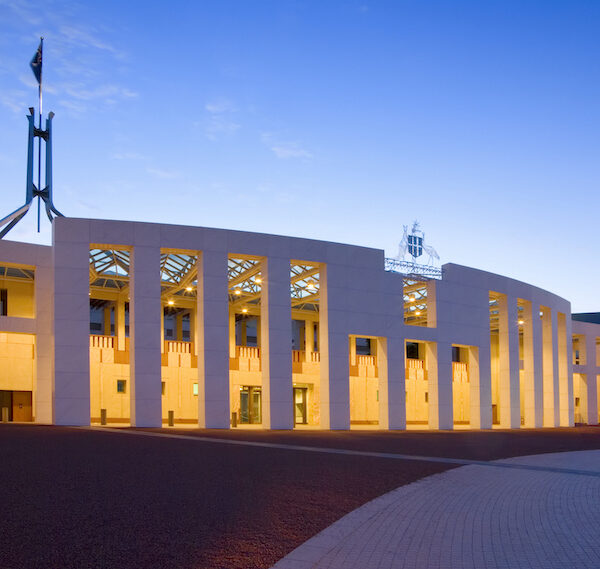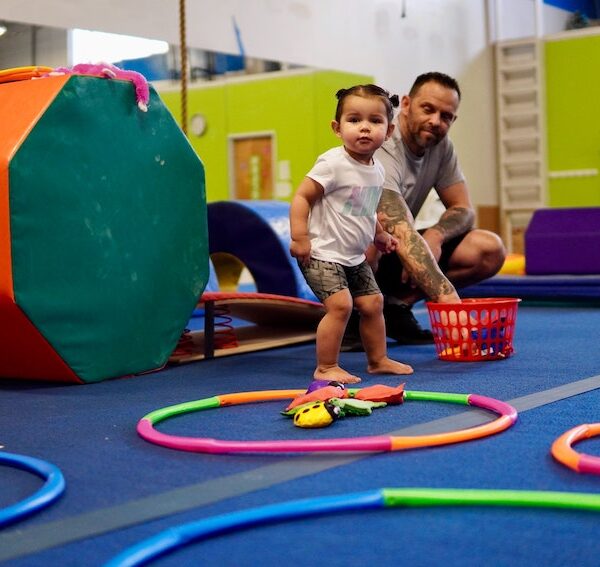ECEC focused organisations and peak bodies respond to Federal Budget

A number of early childhood education and care (ECEC) focused organisations and peak bodies have responded to last night’s Federal Budget announcement, the first for the recently elected Australian Labor Party.
While the Government delivered on its core Plan for Cheaper Child Care promise to improve ECEC affordability for Australian families, any additional policies to directly alleviate the ongoing challenges of the ECEC workforce crisis were absent.
Early Childhood Australia (ECA), the Australian Childcare Alliance (ACA), The Parenthood, and Early Learning Association Australia (ELAA) all responded to the Budget, with the overall consensus being that while the Budget has supportive measures for families, more needs to be done to entice professionals into the sector, and to support the ones who are already here.
A longer term vision for ECEC
ECA described the Budget as “a positive step towards a longer-term vision for ECEC,” welcoming the proposed investment of $4.7 billion from 2022–23 over four years to improve access to and affordability of ECEC for families by increasing Child Care Subsidy (CCS) rates by July 2023, and the progressive increase of paid parental leave to 26 weeks.
CEO Samantha Page said the investments the Budget makes toward supporting children and families are “a significant step in the right direction towards longer-term reforms.”
The government has also allocated $4.2 million over 18 months to support the development of a whole-of-Commonwealth Early Years Strategy, taking an integrated approach targeting the wellbeing, education and development of Australia’s children in the early years.
‘The investment in the Early Years Strategy clearly signals the government’s vision in delivering the best possible outcomes for Australian children,” Ms Page said.
“ECA is excited by the prospect of developing and delivering on a strategy that elevates the importance of children’s education, development and wellbeing outcomes alongside the goal of supporting workforce participation.”
ECA is concerned, however, that an increase in the rate of the CCS, without a complementary measure to increase the number of hours available to families with low incomes and less than 16 hours of work, study or training, will exacerbate existing inequity and widen attainment gaps for children in families with low incomes and insecure work.
Budget falls short on supporting educators
Many of the peak bodies and organisations welcomed the increased subsidy measures in the Budget that will support more children to access early childhood education while sharing their concerns that without a significant investment in the ECEC workforce, including initiatives to retain current staff, early childhood services will not be able to expand to provide the additional early childhood education and care.
The Government did announce $485.5m for new places in higher education including 1,469 for early education teachers, as well as delivering 180,000 fee-free TAFE and vocational education places, and while the additional places were welcomed, “much more is needed to build and retain our vital workforce,” ELAA Acting CEO, Megan O’Connell said.
ACA President Paul Mondo invited the government to work to address the wage issue in collaboration with the sector.
ECA shared this concern, with Ms Page saying that while it was promising to hear the Treasurer refer to the significant role that early childhood educators play in the lives of children, urgent effort is needed to address poor wages in the ECEC sector to enable it to deliver on the government’s promise of more affordable and accessible ECEC for children and families.
“We are optimistic that the government’s commitment to get wages moving will extend to improving wages for the ECEC workforce, the majority of whom are women,” added Ms Page.
“But we are concerned that this significant investment by the government could be negated if we can’t meet the increase in demand due to a critical shortage of educators.
“Action must be taken before the CCS changes come into effect in July next year,” agreed Parenthood Executive Director Georgie Dent.
“We need to make sure that the early education workforce is properly paid and supported. We need to act now to stem the loss of early educators and do everything we can to attract Australians back into this profession.”
Additional measures for ECEC aligned sectors
In addition to the initiatives outlined above, other notable investments in ECEC aligned sectors and services from the Budget include:
- $12.4 million over four years towards playgroups and toy libraries;
- $225.2 million for prevention activities that aim to stop violence against women and children;
- funding addressing underlying drivers of violence, such as $30 million to support outcomes under Safe and Supported: the National Framework for Protecting Australia’s Children 2021–2031; and
- $10.2 million over three years to establish the Early Childhood Care and Development Policy Partnership.
“This budget recognises investment in early childhood education and care and paid parental leave as critical infrastructure that delivers for children, women, families, communities and the economy,” Ms Dent said.
“Early childhood education and care and paid parental leave reform are on the Federal agenda because of decades of campaigning largely led by women. This budget reflects a government willing to listen to their voices.”
Popular

Practice
Provider
Quality
Research
Workforce
New activity booklet supports everyday conversations to keep children safe
2025-07-10 09:00:16
by Fiona Alston

Quality
Practice
Provider
Workforce
Reclaiming Joy: Why connection, curiosity and care still matter in early childhood education
2025-07-09 10:00:07
by Fiona Alston

Policy
Practice
Provider
Quality
Research
Workforce
Beyond the headlines: celebrating educators and the power of positive relationships in early learning
2025-07-07 10:00:24
by Fiona Alston












